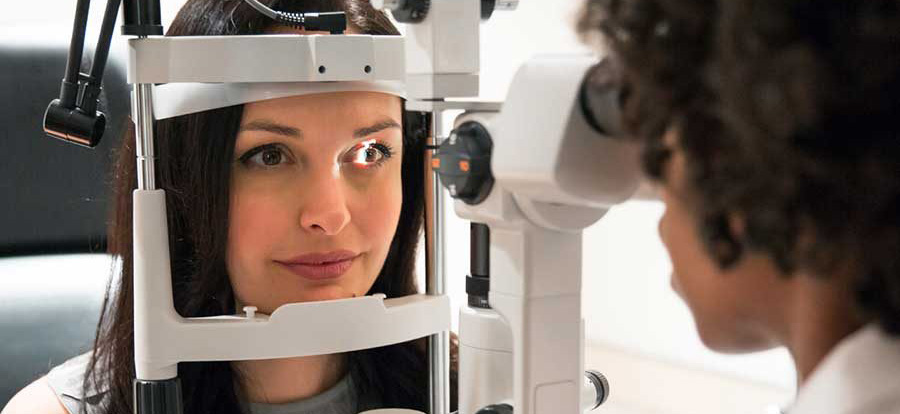Glaucoma Prevention
What Can I Do to Prevent Glaucoma?
Anyone with high risk factors for glaucoma should be tested every year or two after age 35. Currently, regular eye exams are the best form of prevention against significant glaucoma damage.

Early detection and careful, lifelong treatment can maintain vision in most people. In general, a check for glaucoma should be done:
- before age 40, every two to four years
- from age 40 to age 54, every one to three years
- from age 55 to 64, every one to two years
- after age 65, every six to 12 months
Anyone with high risk factors should be tested every year or two after age 35. Those at higher risk include people of African descent, people with diabetes, and people with a family history of glaucoma. You are at increased risk if you have a parent or brother or sister with glaucoma.
Timely Diagnosis and Appropriate Treatment are Key to Glaucoma Prevention
While there are no known ways of preventing glaucoma, blindness or significant vision loss from glaucoma can be prevented if the disease is recognized in the early stages. In its most prevalent form—primary open angle glaucoma—vision loss is silent, slow, and progressive. It typically affects side vision first (peripheral vision) and as it progresses, central vision is lost.
Glaucoma medications slow the progression of glaucoma by reducing elevated intraocular pressure (IOP) to prevent damage to the optic nerve. Surgical treatments are also available.
Benefits of Diet & Exercise
A regular program of moderate exercise will benefit your overall health, and studies have shown that moderate exercise such as walking or jogging three or more times every week can have an IOP lowering effect.
The benefits from exercise last only as long as you continue exercising; this is why moderate exercise on a routine basis is recommended. Yoga can be beneficial, but it’s best to avoid inverted positions such as headstands and shoulderstands, as these may increase IOP.
Talk with your doctor if you have specific questions or concerns about starting an exercise program. A healthy lifestyle, consisting of balanced nutrition, moderate exercise, and appropriate rest is an important part of your overall health and well-being and can help prevent illness too. A recent study suggests that a diet that includes plenty of green, leafy vegetables may lower the risk of glaucoma.
Protect Your Eyes
Wearing protective eyewear is important when engaged in sports activities or home improvement projects.
Eye injuries can result in traumatic glaucoma or secondary glaucoma, so protecting your eyes from injury is another way to prevent glaucoma.
Click here for more information about different types of glaucoma, or talk with your eye doctor.
Remember, regular comprehensive eye exams are the best form of prevention against glaucoma and other eye diseases.
Article by Robert L. Stamper, MD. Last reviewed on March 23, 2022.
